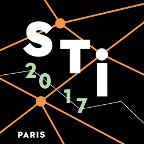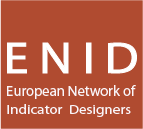Presentations
Here are the list of participants to the STI 2017 Conference and STI 2017 Book of Abstracts.
You can find below the presentations of all sessions.
Introduction to the conference
- Philippe Larédo – Introduction to the Conference
- A video presentation at Youtube IFRIS Channel.
ON IFRIS Youtube Channel see Videotaped sessions
- Keynote of Ismael Rafols
- Keynote of Rémi Barré
- Introductory session
- Round-table to honour Philippe Larédo
Keynotes
- Ismael Rafols – S&T Indicators in the Wild Acting with indicators in an uncertain world
- See the video of the presentation on youtube IFRIS Channel
- Rémi Barré – Les indicateurs sont morts – vive les indicateurs ! Towards a political economy of S&T indicators : a view of the past 40 years
- Rémi Barré – Les indicateurs sont morts ….(text of the presentation)
- See the video of the presentation on IFRIS Chanel on Youtube
Research & Innovation in Africa
- Hugo Confraria – The characteristics of highly cited researchers in Africa
- Bassirou Diagne, Catherine Beaudry and Carl St-Pierre – Impact of mobility and collaboration on scientific output in Africa: first lessons from a pan-African survey
- Faatiema Salie, Kylie de Jager, Chipo Chimhundu, and Tania S. Douglas – Collaboration for medical device innovation in South Africa: focus areas and keyword networks
Altmetrics
- Nicolas Robinson-Garcia, Irene Ramos-Vielba, Rodrigo Costas, Pablo D’Este and Ismael Rafols – Do altmetric indicators capture societal engagement? A comparison between survey and social media data
- Kuku Aduku, Mike Thelwall and Kayvan Kousha – Can conference papers have information value through Wikipedia? An investigation of four engineering fields
- Rodrigo Costas, Jeroen van Honk, Clara Calero-Medina and Zohreh Zahedi – Exploring the descriptive power of altmetrics: case study of Africa, USA and EU28 countries (2012-2014)
- Nicolas Robinson-Garcia, Rakshit Trivedi, Rodrigo Costas, Kimberley Isett, Julia Melkers and Diana Hicks – Tweeting about journal articles: Engagement, marketing or just gibberish?
- Lutz Bornmann and Robin Haunschild – Do bibliometrics and altmetrics correlate with the quality of papers? A large-scale empirical study based on F1000Prime, altmetrics, and citation data
Careers & Mobility
- Jakob Tesch – The Influence of Organizational Publication Output on Job-Placement and Individual Output of Doctorate Holders
- Carter Bloch, Malene Christensen, Qi Wang and Allan Lyngs – On the importance of studying abroad among postdocs – an analysis of postdoc fellowships in Denmark
- Carey Ming-Li Chen – Do researchers with international mobility experiences have better academic performance through bibliometric indicators? The case study of Taiwan
- Nicolas Robinson-Garcia, Cassidy R. Sugimoto, Dakota Murray, Alfredo Yegros-Yegros, Vincent Larivière and Rodrigo Costas – Unveiling the multiple faces of mobility: Towards a taxonomy of scientific mobility types based on bibliometric data
- Lucio Morettini, Emanuela Reale and Antonio Zinilli – Moving or remaining: international mobility and careers of PhD holders in Social Sciences and Humanities
- Eric Iversen, Pål Børing and Richard Woolley – Sizing-up changing researcher mobility patterns in Norway using a combined data approach
- Manfred Spiesberger – Workshop on Indicators for measuring the impact of large scale interventions for R&I – the case of the EU Flagships
Location-based Approaches
- Douglas Robinson, Antoine Schoen, Laurens Patricia and Philippe Larédo – Developing global and local STI indicators for profiling the territorial embedding of marine biotechnology research centres
- Marion Maisonobe, Béatrice Milard, Laurent Jégou, Denis Eckert and Michel Grossetti – The spatial de-concentration of scientific production activities: what about citations? A world-scale analysis at city level (1999-2011)
- Wolf-Hendrik Uhlbach, Pierre-Alexandre Balland and Thomas Scherngell – Technological diversification of regions and public R&D funding: Evidence from the EU Framework Programmes
- Lionel Villard, François Perruchas, Thomas Scherngell, Michael Barber, Philippe Larédo and Jordi Molas-Gallart – Metropolisation, peripheries & funding of nano S&T production in Europe
Gender perspective
- Ulrike Busolt, Sandra Klatt and Wiebke Kronsbein – Gender gap in patent activities in Europe: Three Indicators INODE, FIPMIN and WIN describing the issue
- Núria Bautista Puig and Elba Mauleón – European Research Council Grants: excellence and leadership over time from a gender perspective
- Lili Miao, Dakota Murray, Zaida Chinchilla-Rodríguez, Vincent Larivière and Cassidy Sugimoto – Glass Boundaries: Differences in Interdisciplinarity Between Men and Women
- Dakota Murray, Cassidy Sugimoto and Vincent Larivière – A Balanced Portfolio? The relationship between gender and funding for U.S. Academic Professors
- Catherine Beaudry and Heidi Prozesky – Factors that affect scientific production in Africa: a gender analysis
Special Session: Developing an Evaluation Framework for Promoting Gender Equality in R&I (EFFORTI)
- Susanne Buehrer, Evanthia Schmidt, Cheng Fan, Sybille Reidl, Florian Holzinger, Jörg Müller, Rachel Palmen, Dora Groo, Martina Schraudner, Katharina Hochfeld and Raimund Broechler – Developing an Evaluation Framework for Promoting Gender Equality in R&I (EFFORTI) – first insights from an on-going H2020 project – Overview
- Susanne Buehrer – Presentation (EFFORTI)
STI History
- Arlette Jappe – Who defines professional standards and which indicators are used in bibliometric research evaluation?
- Clemens Bluemel, Stephan Gauch and Florian Beng – Altmetrics and its intellectual predecessors: Patterns of argumentation and conceptual development
- Sabrina Petersohn and Thomas Heinze – Bibliometric Research Assessment as Professional Jurisdiction? Insights from the History of the Leiden Center for Science and Technology Studies (CWTS), 1980–2016
Innovation Dynamics
- Gaston Heimeriks, Antoine Schoen, Patricia Laurens, Lionel Villard and Floortje Alkemade – The evolving technological capabilities of firms
- Daniel Vertesy, Maria Del Sorbo and Giacomo Damioli – In search of high-growth, innovative firms in Europe: evidence for cross-sectoral and cross-country differences
- Massimo Colombo, Massimiliano Guerini – Fast-growing mid-size firms in Europe: A first exploration
- Laurens Patricia, Antoine Schoen, Alfredo Yegros and Philippe Laredo – Exploration of knowledge in European large firms in the Chemicals and Pharma/biotech sectors: level and mode of collaboration in the corporate scientific publications and patents
- Benjamin Layani, José Molero and José María Fernández-Crehuet – The Innovation Union’s performance scoreboard for Research and Innovation: The digital basic capacities.
- Carita Eklund – Innovation Capability from Intangible Assets
- Antoine Schoen, Patrica Laurens, Alfredo Yegros and Philippe Larédo – Comparative analysis of knowledge production in analogous large European firms: how much do individual strategies matter?
Issues in Scientometrics
- Ronald Rousseau, Carlos García-Zorita, Sergio Marugan Lazaro and Elias Sanz-Casado – Rankings dynamics and volatility
- Jens Peter Andersen, Fereshteh Didegah and Jesper Wiborg Schneider – The necessity of comparing like with like in evaluative scientometrics: A first attempt to produce and test a generic approach to identifying relevant benchmark units
- Vincent Antonio Traag and Rodrigo Costas – Are citations driven by journal impact?
- Tindaro Cicero and Marco Malgarini – The effect of research collaborations on citation impact: a dynamic panel data analysis
- Belén Álvarez-Bornstein, Adrián A. Díaz-Faes and María Bordons – Relationship between research funding and scientific output in two different biomedical disciplines
- Ludo Waltman and Vincent Antonio Traag – Use of the journal impact factor for assessing individual articles need not be wrong
- Wolfgang Glänzel and Bart Thijs – Bridging another gap between research assessment and information retrieval – The delineation of document environments
- Valeria Aman – Does the Scopus author ID suffice to track scientific international mobility? A case study based on Leibniz laureates
- Andrea Reyes-Elizondo, Clara Calero-Medina and Martijn Visser – Affiliated hospitals: the challenge of academic medical centers
- Loet Leydesdorff, Caroline Wagner and Lutz Bornmann – “Interdisciplinarity” at Different Levels of Aggregation: Betweenness and Diversity in Journal Citation Networks (Draft of a Tribute to Eugene Garfield)
- Peter Van Den Besselaar and Ulf Sandström – Influence of cognitive distance on grant decisions
- Zsófia V. Vida – Authors’ cognitive distance on collaboration networks via Author Bibliographic Coupling Analysis
New Methodologies
- Diana Maynard and Benedetto Lepori – Ontologies as bridges between data sources and user queries: the KNOWMAK project experience
- Alfredo Yegros, Maria Francisca Abad, Robert Tijssen and Ismael Rafols – Exploring the misalignment between global burden of disease and publication patterns in health research
- Gemma Derrick – Exploring in-group heuristics in peer review panels assessing societal Impact
- Stephan Stahlschmidt – Abstract Readability as a Soft Parabolic Glass Ceiling for Citations
- Patricia Helmich, Peter Neuhäusler and Rainer Frietsch – Cycles and evolution of topics in scientific journal publications and patent data – analyzing keywords and textual data
- Yves Fassin – A New Qualitative rating system for scientific articles and a new fame index
- Johan Eklund and Gustaf Nelhans – Topic modelling approaches to aggregated citation data
- Nicolas Carayol, Agenor Lahatte and Oscar Llopis – Novelty in Science
- Cinzia Daraio – A doubly conditional performance evaluation model, the democratization of evaluation and Altmetrics
- Zehra Taskin, Umut Al and Umut Sezen – First Stage of an Automated Content-Based Citation Analysis Study: Detection of Citation Sentences
Open Access
- Thed Van Leeuwen, Ingeborg Meijer, Alfredo Yegros and Rodrigo Costas – Developing indicators on Open Access by combining evidence from diverse data sources
- David Brooke Struck, Guillaume Roberge and David Campbell – The Influence of Open Access, Gender and Co-authorship on Citation Scores
- Peter De Padua Krauss, Jorge H. C. Fernandes and Ricardo Barros Sampaio – Open Access Coherence Study in publications related to the Zika outbreak
Special track : Multiplying methods in research evaluation
(organized by Sarah de Rijke with Gemma Derrick, Thomas Franssen, Jordi Molas-Gallart, Ismael Rafols, Jesper Schneider, Inge van der Weijden, Paul Wouters and Julia Heuritsch
- Marc Barbier – The web of Challenges of Forthcoming Platforms of Digital Studies. Emancipation and Context of Uses
- Hélène Draux – Visualising topic modelling.. Simplifying or complexifying?
- Jesper W. Schneider – Embrace variation and accept uncertainty
- Jordi Molas-Ballart – Reflections on comibining methods. A 10-minute provocation
- Gemma Derrick – Mixed, mixing and mul.plying methods
- Ismael Rafols – Visualisations as facilitators of engagement between approaches
Research Systems Performance
- Benedetto Lepori, Emanuela Reale and Andrea Orazio Spinello – Conceptualizing and Measuring Performance Orientation of Research Funding Systems
- Robert Tijssen and Winnink Jos – Capturing R&D excellence: country-level performance indicators and international statistics
- Gunnar Sivertsen – Problems and considerations in the design of bibliometric indicators for national performance based research funding systems
- Jesper W. Schneider, Kaare Aagaard, Martijn Visser and Thed van Leeuwen – Examining potential database effects in longitudinal country impact analyses using fixed journal sets
- Marco Alfò, Sergio Benedetto, Marco Malgarini and Scipione Sarlo – On the use of Bibliometric information for assessing articles quality: an analysis based on the third Italian research evaluation exercise
- Janne Pölönen, Tim Engels, Raf Guns and Frederik Verleysen – Is my publication peer reviewed? A comparison of top-down and bottom-up identification of peer review in the framework of the Finnish and Flemish performance-based research funding systems
- Vincent Antonio Traag and Ludo Waltman – Replacing peer review by metrics in the UK REF?
SSH session
- Sándor Soós, Zsófia Vida and George Kampis – Mapping the scientific impact of European funded SSH projects
- Linda Sile, Janne Pölönen, Gunnar Sivertsen, Raf Guns and Tim Engels – European databases and repositories for Social Sciences and Humanities research output: exploring comprehensiveness
- Alberto Martín-Martín, Enrique Orduna-Malea and Emilio Delgado López-Cózar – Journal Scholar Metrics: building an Arts, Humanities and Social Sciences journal ranking with Google Scholar data
Transnational Research
- Lili Wang, Xianwen Wang and Fredrik Piro – Scientific research and funding networks between China and the European Union
- Zaida Chinchilla-Rodríguez, Lily Miao, Dakota Murray, Nicolas Robinson-García, Rodrigo Costas and Cassidy Sugimoto – A large-scale comparison of the position of countries in international collaboration and mobility according to their scientific capacities
- Emanuela Reale and Antonio Zinilli – Public funding of transnational research: evidences from network analysis
- Koen Jonkers, Peter Fako, Lorenzo Isella, Thomas Zacharewicz, Ulf Sandstrom and Peter Van den Besselaar – A comparative analysis of the publication behaviour of MSCA fellows
Higher Education in Europe
- Barbara Antonioli Mantegazzini and Benedetto Lepori – Funding of European Higher Education Institutions: a cross-country and longitudinal perspective
- Daniele Checchi, Irene Mazzotta and Sandro Momigliano – Research assessment in Italy: have the results of universities converged?
- Barbara Heller-Schuh, Martina Dünser and Benedetto Lepori – Concentration processes and its effects on research performance: Evidence from European public sector research organisations
Two Posters received the Prize of Best Poster Award:
Marianne Noel and Frédérique Bordignon
The pitfalls of signature. Questionning affilation in French research and higher education institutions
With the emergence of the citation cycle, scientific activities have entered an accountability regime (Wouters, 1999). Publications in prestigious journals account for the activities of labs and departments, contribute to their higher visibility and allow them to access funding (sometimes through a performance-based system), are used to attract attention and students to the laboratory (Rushforth & de Rijcke, 2015). In this context, affiliation is a topic (or a variable) of growing interest in science policy, as illustrated by the occurrence of the term (more than 70 times) in the proceedings of the STI conference in 2016. It is mainly addressed in technical terms (for instance how to clean addresses) but not only. With the development of social media, being easily identified and recognizable is nowadays an important issue for individuals in academia. It’s also a challenge for institutions. Affiliation reflects multiple socialities; it can mean joining or being part of a group, even sometimes excluding oneself from this group. Scientific activities take place in multiple collectives arranged around instruments, projects, domains or specialties, funding schemes… with professionals belonging to various organizations, institutions, etc. As emphasized by Pontille (2004), the history of the scientific signature is closely tied to how research is organized in a field. Signature is also a sign that should be understood inside a larger agency connected to the genesis of acts, their making and their archives (Fraenkel, 2008). In universities, various services are in charge of analysing and managing research outputs to inform institutions’ strategy: library, office of research, knowledge transfer structures, etc. In this study, we focus on how doing bibliometrics affect their role in the larger framework of the university organization. Job profiles in libraries are moving towards “data librarian” profiles because of the need of technical skills to retrieve information from databases, particularly for bibliometric analyses (Astrom & Hansson, 2013). In this paper, we propose to investigate the relation between information professionals and high-level management as revealing tensions (between monitoring and building fiability). Adopting a data infrastructure perspective, we wouldlike to question the intersection between collection, classification and evaluation practices. The goal of the paper is also to share information about the situation in France. For 10 years, the continuous creation of new funding schemes and structures has led to a landscape where research organizations and universities overlap largely. The French research and innovation system is often characterized as a “millefeuilles”, a pastry with multi-layered structure. Recommendations on affiliations have been issued at the national level (Dassa et al, 2015), but they are considered as an unrealistic ideal. Our case study deals with a prestigious school of engineering setup in a large university campus. We will present the context and stages of development of a tracking tool that includes 1/ the tagging of the multiple versions of the lab’s name (up to 1200 versions were found in the study period) and 2/ an attempt to identify articles containing the school’s name in the main databases (WoS, Scopus and HAL), a work that has been developed in interaction with the main commercial providers. We will describe actors being pulled back and forth between conflicting and non-coordinated demands and emphasize intended effects of these tagging/tracking activities. At least, this work aims to examine the lessons derived from the development of multiple affiliations as a possible consequence of growing interdisciplinarity and question the pertinent scale of analysis. Would the solution be, as suggested by ORCID, an Organization ID? (Pos20)See the poster stored on HAL repository
Richard Heidler, William Dinkel and Anke Reinhardt
Broadening the reviewer pool of the German Research Foundation: Drivers, effects and perspectives
Today, the scientific system uses peer review extensively as an assessment and decision-making instrument. This leads to a perceived burden (and therefore fears of negative effects) on the science system itself and on the individual reviewers. So far, very little is known about the characteristics of this increasing demand and even less about its consequences for decision-making processes that rely on peer review. Our contribution will provide empirical insights into the characteristics of the German Research Foundation’s (DFG) review system and reviewers. Based on a dataset of the DFG’s proposals and reviews, we develop a set of indicators to measure the peer review load both at the individual and at the systems level. (Pos11)







